Uzbekistan’s capital hosted September 23 the 2nd Tashkent Anti-Corruption Forum, organized by the Anti-Corruption Agency together with the National Anti-Corruption Council, the Ministry of Justice, the Prosecutor General’s Office and the UN Development Program, with the support of UNODC, OSCE, World Bank and Regional Dialogue International NGO.

The event brought together the representatives of anti-corruption agencies of a number of foreign countries, including the United States, the Republic of Korea, Malaysia, Latvia, Azerbaijan, as well as foreign experts, representatives of the diplomatic corps and international organizations, ministries and departments of the country, civil society institutions, and the media.
The main goal of the Forum was to inform the general public and the international community about the ongoing reforms and efforts to combat corruption in Uzbekistan, identify future tasks in this track, exchange experience with local and foreign partners, as well as further expand international cooperation.
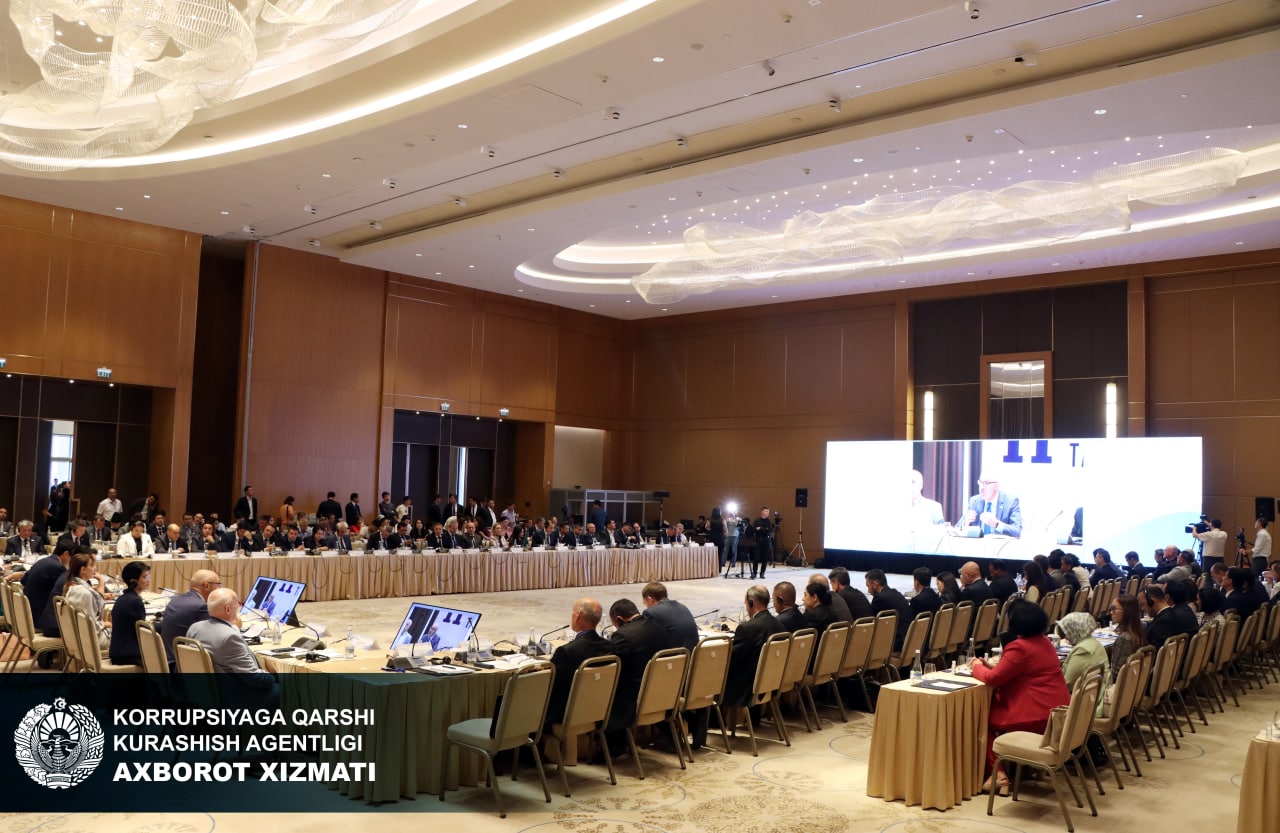
A plenary session gave start to the Forum, which continued with a number of sessions. The sessions discussed several issues, including the formation of an intolerant attitude towards corruption in society, ensuring the openness of the activities of government agencies and organizations, as well as the assessment of corruption risks, mechanisms for strengthening education in the fight against corruption.
In particular, in the first session of the Forum on the theme ‘Openness and transparency as an effective mechanism for combating corruption’, the heads and representatives of the competent anti-corruption organizations and departments of Uzbekistan, Korea and Azerbaijan, experts from the OSCE, Regional Dialogue International NGO made presentations on the development of effective mechanisms to ensure the openness of the activities of government agencies and organizations, the use of open data and support for the implementation of public control.
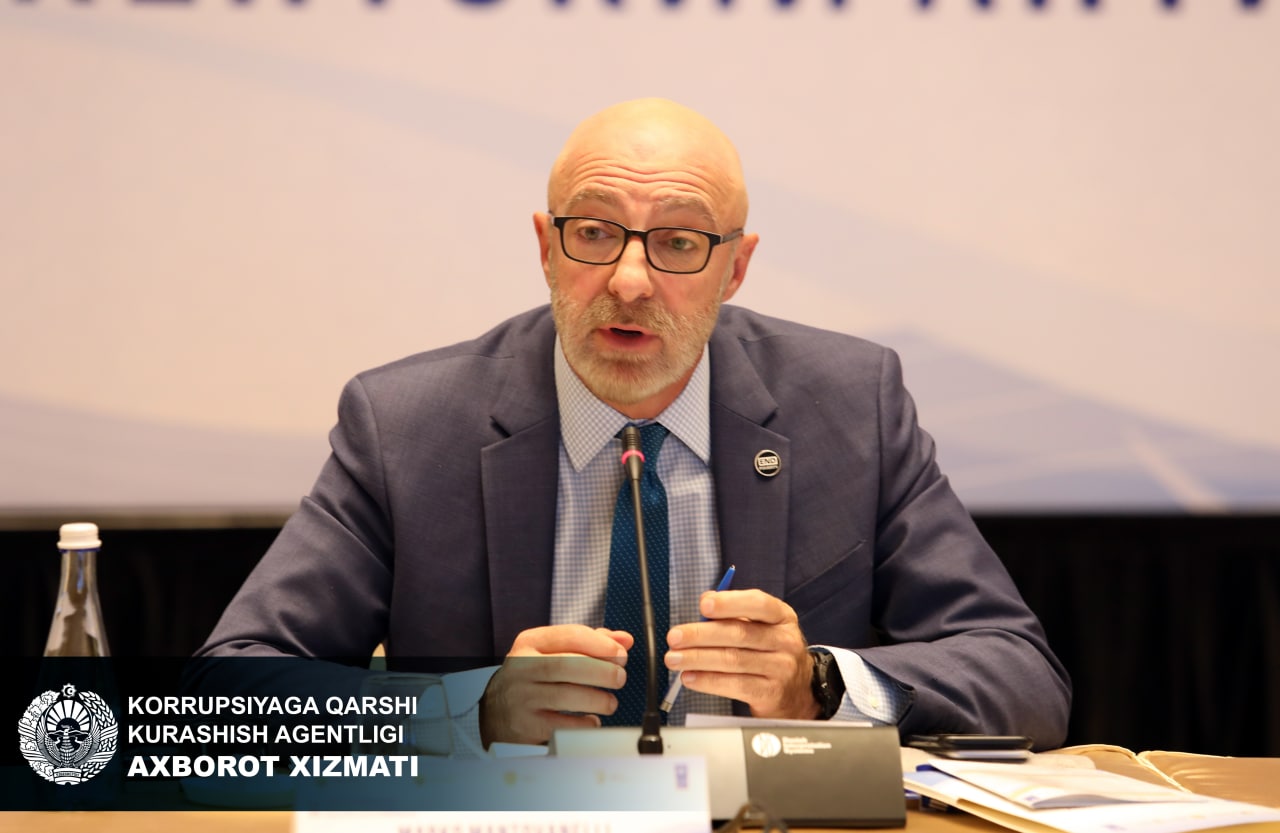
Within the framework of the next session on the theme ‘Formation of an effective corruption risk assessment’, national and international participants were introduced to the corruption risk assessment methodology, corruption risk assessment methods and their importance in preventing corruption and maintaining the integrity of the system.
Also, special attention was paid to the issues of identifying, assessing and minimizing corruption risks.
At this session, representatives of Malaysia, Hong Kong, Finland, as well as experts from the World Bank, UNDP and the European Council introduced the participants to foreign experience in this area.
The session on the theme ‘The role of education in the fight against corruption’ discussed the issues of the exchange of best practices in the field of anti-corruption education, the study of modern mechanisms and tools of anti-corruption education, as well as the development of recommendations for further improvement of anti-corruption measures for the training of civil servants and citizens.
Experts from the UN Development Program, UNODC, the World Bank, and the International Anti-Corruption Academy Reports delivered speeches with the session.
In addition, the participants of the session discussed the work carried out in Uzbekistan in this area and plans for the future.
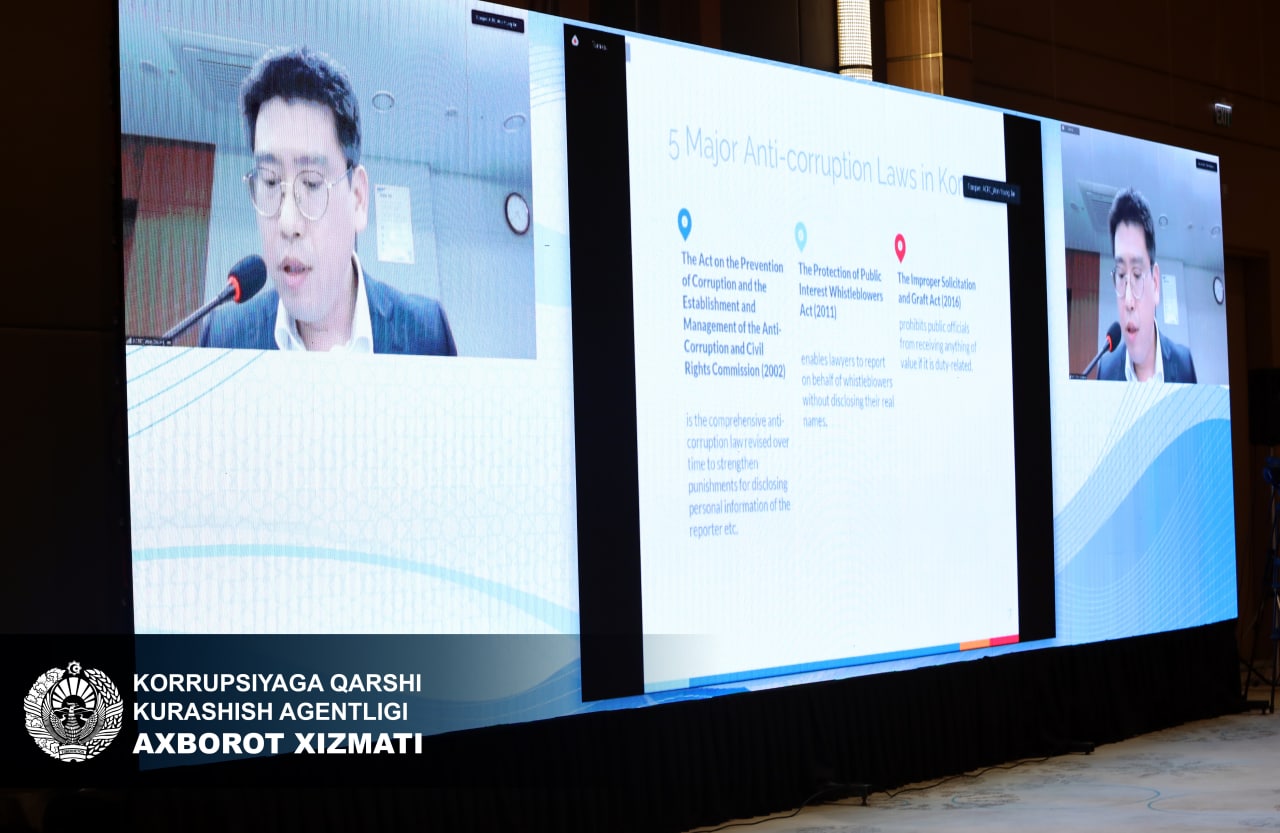
As part of the Forum, the Anti-Corruption Agency awarded a number of organizations and individuals for their contribution in the sphere:
- The State Customs Committee of the Republic of Uzbekistan was recognized as the best in the effective organization of work of the compliance control system;
- Fayzbog’ (Temurmalik) Telegram Channel was recognized as the best page in the social network that actively promotes the fight against corruption;
- Anora Sodiqova, editor-in-chief of Rost24.uz website, was recognized as the most active journalist in the fight against corruption;
- The Jizzakh Regional Anti-Corruption Council was recognized as the most active regional council.
-
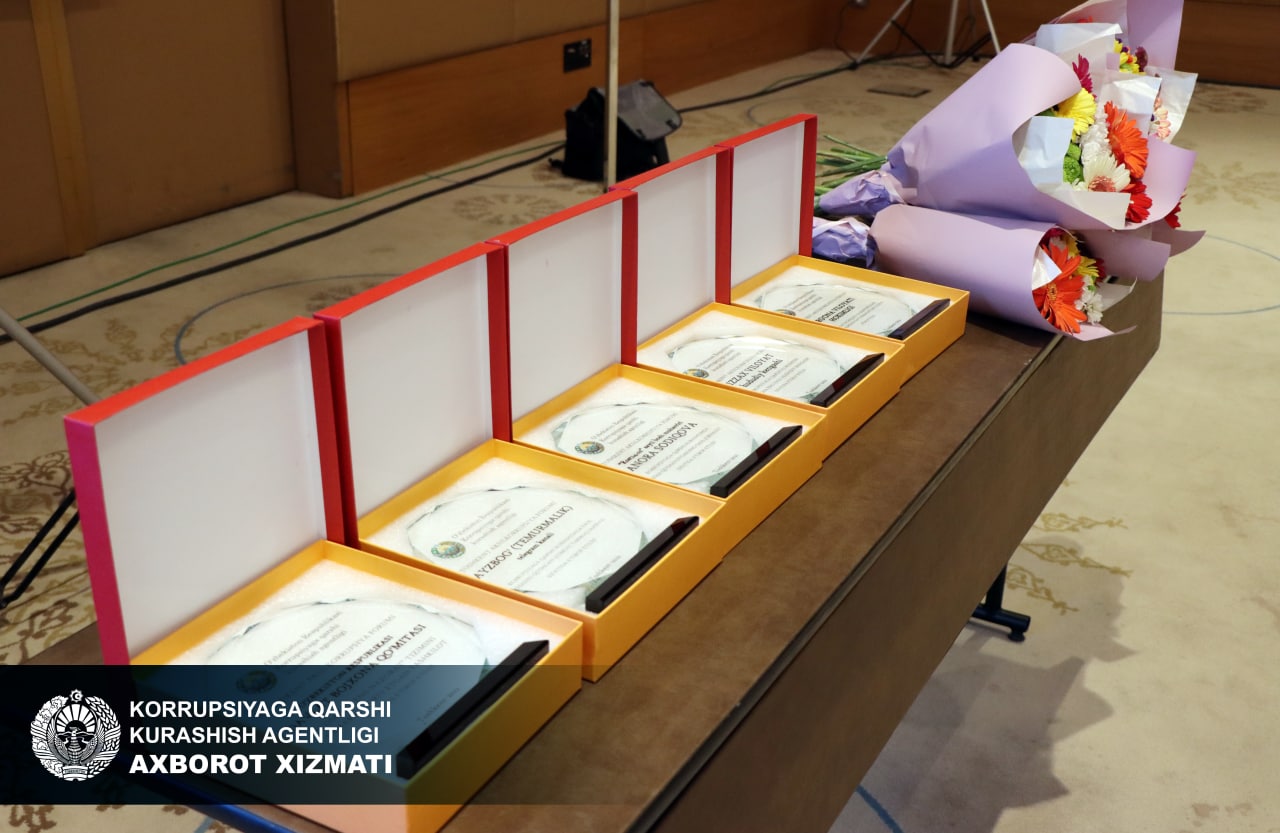
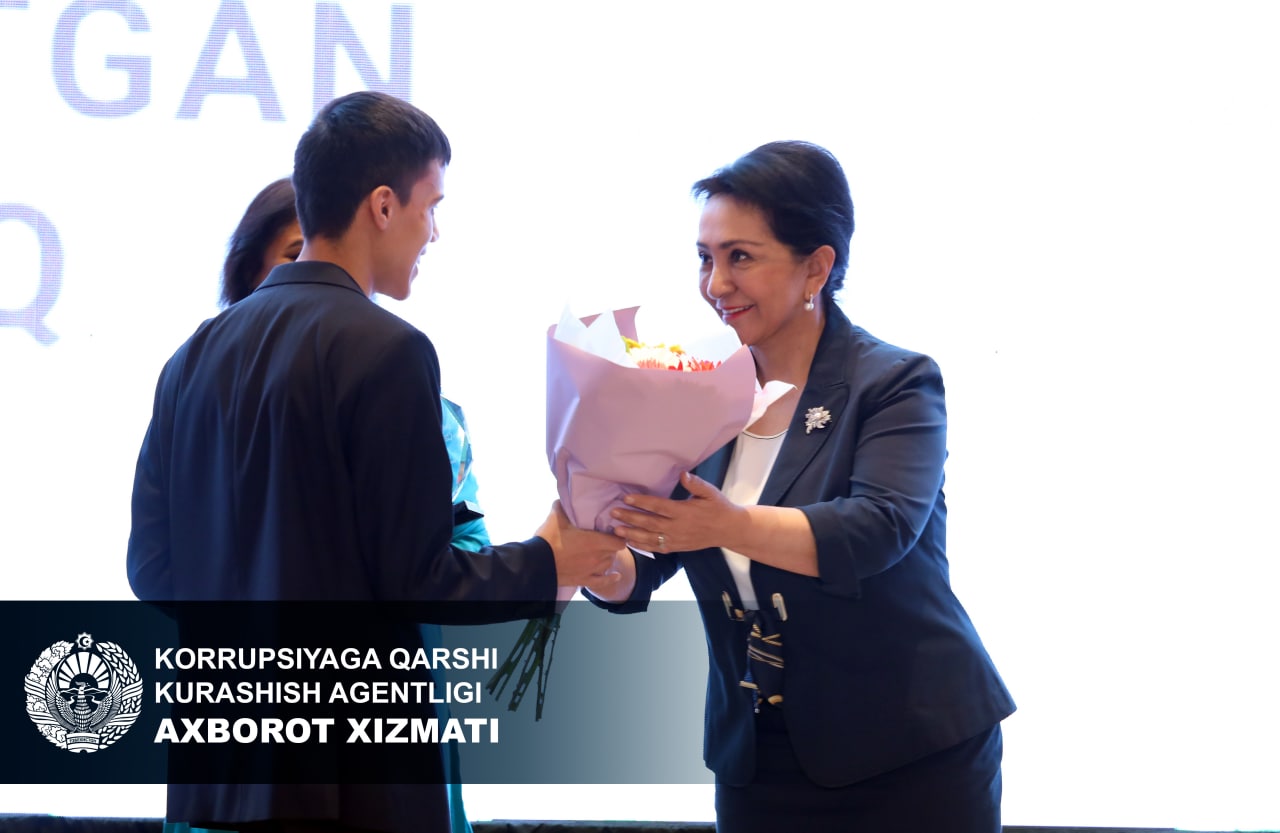
The Forum made it possible to present to the international community the essence and significance of the measures taken to combat corruption, as well as the results of reforms implemented in the field of combating corruption in Uzbekistan.
In a word, this event has become a unique platform for open dialogue, active discussion and exchange of experience for domestic and foreign experts in the field of combating corruption, representatives of government agencies, civil society institutions and journalists.
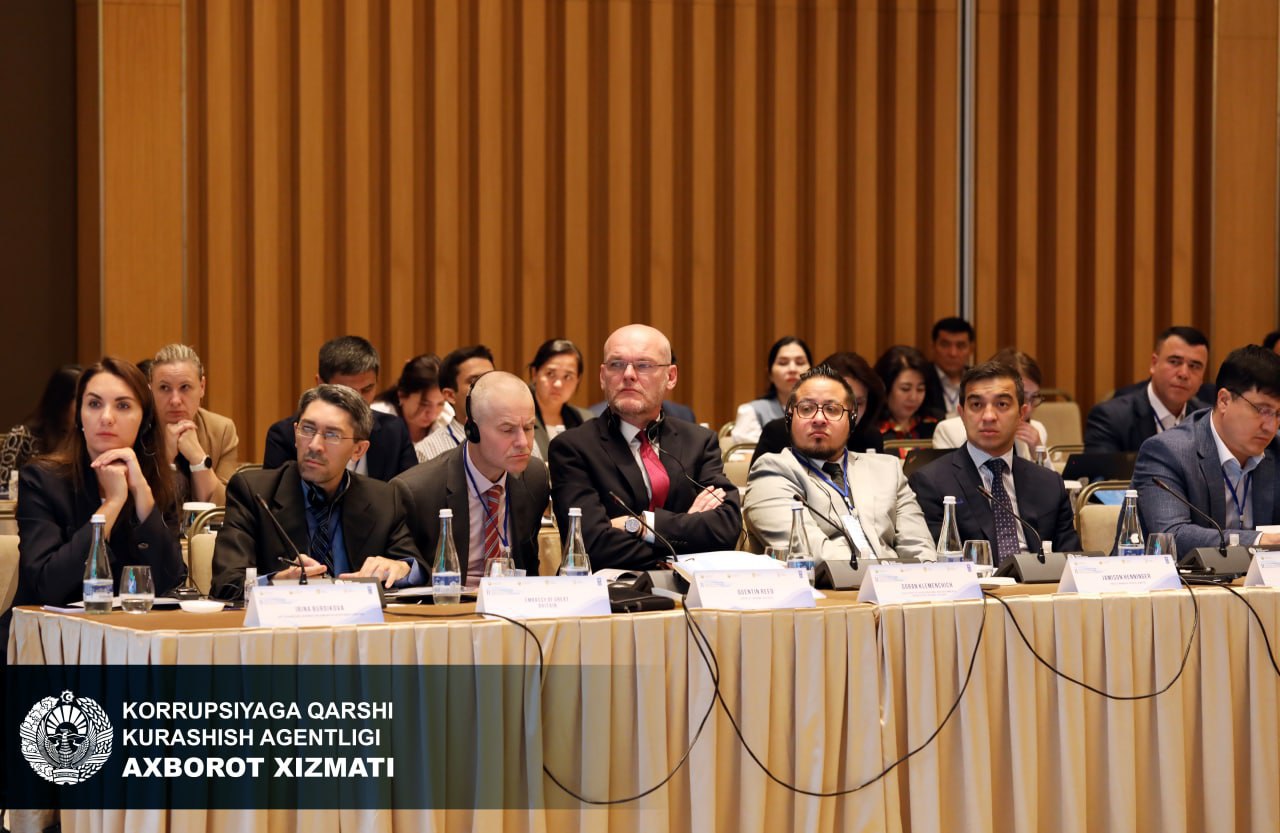
Following the Forum, proposals and recommendations were prepared for further improvement of the current anti-corruption policy, assessment of the effectiveness and quality of measures in this track, as well as the development of international cooperation.
Press Office
The Anti-Corruption Agency







